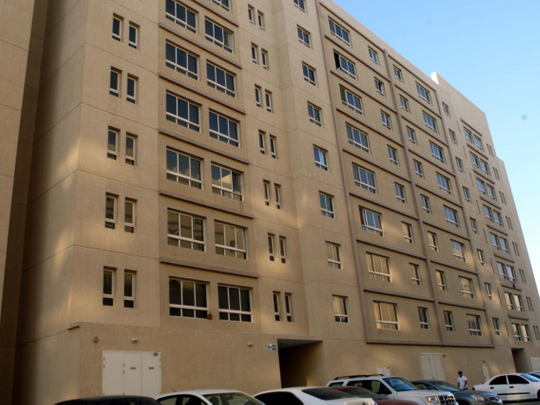
Dubai: Seventy-two Indian expats committed suicide in Dubai and the northern emirates as of October.
The incidences of a 45-year-old father of three found hanging from the rails of a residential building in Al Khail and a 36-year-old Indian worker killing himself under the Metro are the latest on the list.
According to a 2011 Dubai Police report, over 70 per cent of the suicides were committed by Indians.
In spite of the numbers falling to almost half compared to 2008, the high rate of suicides in the community continues to cause concern. In 2008, the number of suicides among Indians in Dubai and the northern emirates peaked at 147, then fell to 114 in 2009, 110 in 2010, 76 in 2011 and 72 this year.
The community has taken numerous initiatives to help those in distress. These include the formation of welfare associations and a dedicated helpline for workers by the Indian Worker Resource Centre (IWRC) where the needy are counselled. Since the IWRC was set up in November 2010, it has received over 37,000 calls for grievance registration and nearly 3,000 people have received legal, financial or personal counselling.
While financial problems are cited as the leading reason for these suicides, psychologists and representatives of the Indian welfare associations said the problem is because of the social set-up here and the drastic changes in values which people are not able to cope with.
“There are dedicated anti-suicide counselling sessions offered by the Indian Community Welfare Committee (ICWC). But to help people we need to be socially connected,” said K. Kumar of ICWC.
“The number of suicides peaked in 2008 during the time of the financial crisis. It has now fallen, but is still high. One obvious reason is that Indians form a majority of the expat population. There are other issues like financial problems. However, we have often found that the reasons are more than just financial,” said K.V. Shamsudheen, founder of the Pravasi Bandhu Welfare Trust, which started an initiative called ‘Swandanam’ for people in need.
“The pressure to maintain a certain level of lifestyle for families back in India creates economic crises. People are forced to create a false image of happiness and success, which is a problem.”
Shamsudheen said people have been unable to pay their bank loans for which they have been charged eight per cent. However, these people have fallen into the trap of credit cards where interests rate hit 24 per cent. These people then resort to individual money lenders who charge them over 100 per cent. “They even give their passports to these lenders. In an attempt to sort the problem themselves, they do not share their issues. All these multiply their problems and many times they lose hope.”
Dr Shaima Ahammed, who volunteers with an Indian NGO and is an Assistant Professor of Psychology at UAE University, said: “Firstly, the average suicide ratio in Kerala, from where a majority of expats in the UAE come, is higher than the world average. The reasons that we have a high rate of suicide by Indian expats vary from lack of awareness to sociological and psychological factors. Failure at work is seen as a personal failure, social support has reduced. In many cultures where religion is a protective factor, suicide rates are low,” she added.








